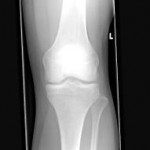
In 2003 a brand new virus named severe acute respiratory syndrome coronavirus (SARS-CoV) caused an outbreak of serious illness in Asia. The outbreak sickened over 8,000 people and killed over 700. Many of the infected were healthcare workers.
In February of last year a similar but distinct virus was identified in Saudi Arabia, the Middle East respiratory syndrome coronavirus (MERS-CoV). Since that time about 200 people have been sickened by MERS, all linked to six countries in or near the Arabian Peninsula. The World Health Organization (WHO) has confirmed 180 cases (143 in Saudi Arabia) and 77 deaths (59 in Saudi Arabia). There have been no cases thus far in the U.S. No specific treatment or vaccine exists for MERS-CoV.
The current issue of Annals of Internal Medicine published a report by researchers in Saudi Arabia describing 12 patients admitted to intensive care units (ICU) with MERS-CoV. The description of the illness that emerges from details they report is scary. Eight of the patients contracted the illness in the community. Three patients were in the ICU for other reasons and were infected in the ICU, and one was a healthcare worker who presumably contracted the illness at work. The patients ranged in age from 36 to 83. The average time from the onset of symptoms to presentation to the emergency department was one day, and to ICU admission was two days.
The majority of patients presented with shortness of breath, cough, and fever. Many of the patients had chronic illnesses, such as diabetes, high blood pressure, heart disease and kidney disease. All of them required being on a ventilator (a breathing machine). Their chest x rays (which you can check out yourself in the article) looked horrible. They spent an average of 16 days on the ventilator. Seven patients had kidney failure requiring temporary dialysis. Eight patients had dangerously low blood pressure requiring medication to elevate it. Seven patients (about half) died.
MERS-CoV is definitely transmitted from person to person, but the specific mode of transmission is still uncertain. It’s not clear if the virus is transmitted in respiratory droplets, or by direct contact. Thus far MERS-CoV appears to be much more lethal but much less infectious than SARS was. That’s another way of saying that it’s a younger virus, since germs tend to get less lethal and more infectious as they evolve. (A mutation that makes a virus more infectious will spread much faster than a mutation that makes it less infectious. Similarly a mutation that makes it less lethal will give the patient longer to infect others.)
Neither the Centers for Disease Control (CDC) nor the WHO recommends that anyone change their travel plans because of MERS. For now, it seems geographically quite localized and fairly difficult to catch. But no one can say what the future holds, and whether a few mutations from now MERS will be coming to an airport near you. If that happens, the rapid development of a vaccine will be critical.
The small lesson is that MERS is an emerging pathogen that deserves our attention, and that what is simmering on the other side of the globe this year can be a global pandemic next year. The big lesson is that nature is a mixed bag. Nature brings us both rainbows and tsunamis, both my 10 year-old daughter’s amazing eyes and the norovirus that is keeping her home from school today. And every now and then Mother Nature invents brand new ways to kill some of us.
Learn more:
Middle East Respiratory Syndrome (MERS) (Centers for Disease Control and Prevention page)
A Novel Coronavirus Called “MERS-CoV” in the Arabian Peninsula (Centers for Disease Control and Prevention travel recommendations)
Middle East respiratory syndrome coronavirus (MERS-CoV) – update (World Health Organization)
New MERS death raises Saudi toll to 59 (AFP)
Clinical Course and Outcomes of Critically Ill Patients With Middle East Respiratory Syndrome Coronavirus Infection (Annals of Internal Medicine article, free without subscription)
Medusa’s Ugly Head Again: From SARS to MERS-CoV (Annals of Internal Medicine editorial, subscription required)

